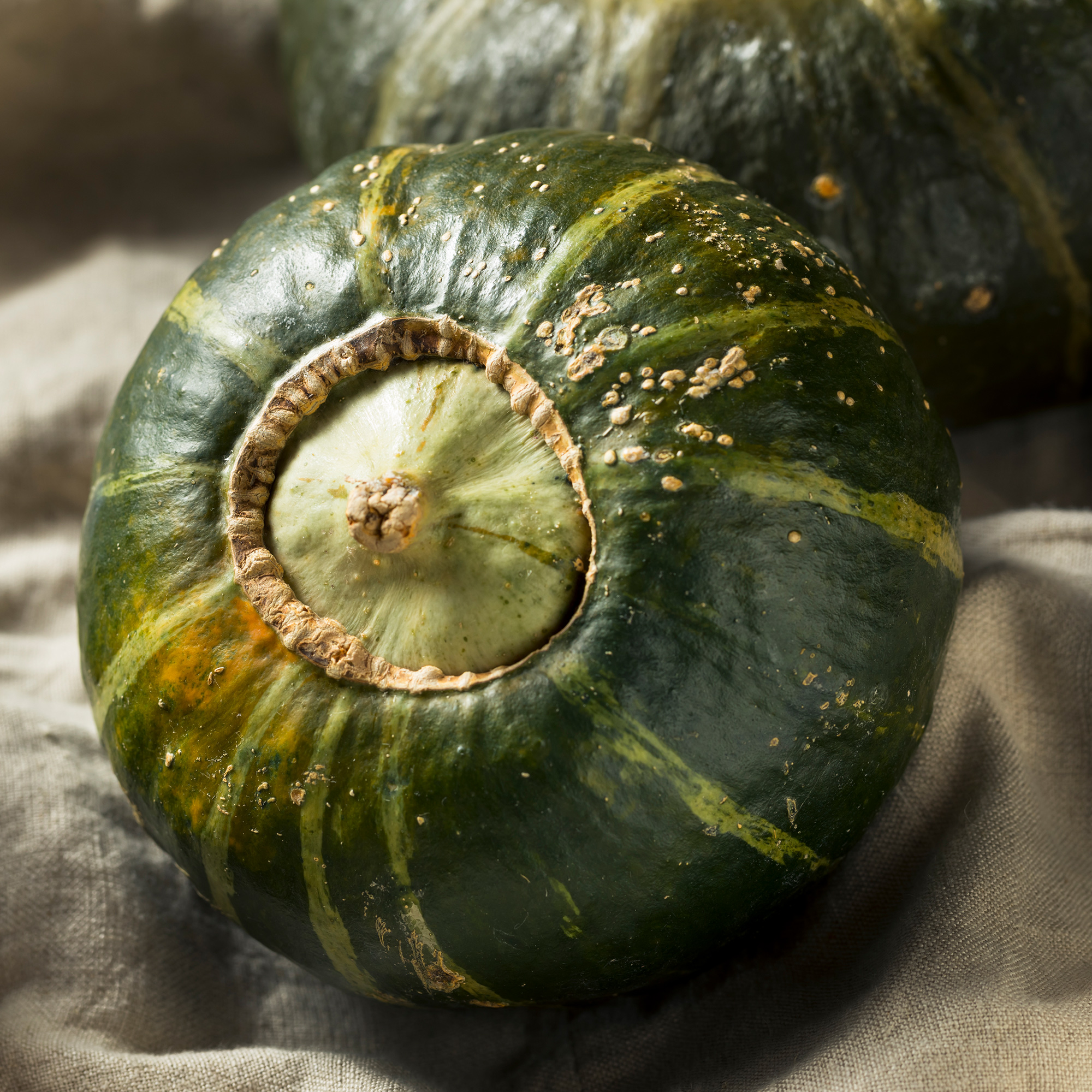Squash, Winter - Buttercup Bush Emerald Strain - 4g Packet ~20 Seeds - Buy Non-GMO Cucurbita maxima Farm & Gardening Seeds Onlin
Squash, Winter - Buttercup Bush Emerald Strain - 4g Packet ~20 Seeds - Buy Non-GMO Cucurbita maxima Farm & Gardening Seeds OnlinButtercup Bush Emerald Strain Winter Squash Seeds. 90 Days. Annual. Open Pollinated. Cucurbita maxima. Harvests in about 90 days as 5 pound winter squash with dark green, nearly black skin with a sweet yellow-orange flesh used in countless seasonal recipes. Buttercup squash produces uniform and boxey pumpkin-shaped squash able to be grown on the ground just as easily as it can be trellised. Winter squash generally thrives as a vining crop whereas summer squash is almost exclusively a bush crop. Annual crop that prefers full sun and warmer weather. Plant in spring. Plant 2-3 seeds .5 inches deep per cell or every 36-48 inches in garden in loamy, well-drained soil in full sun. Price: $3.59 Order Online Here UPC: 740006102833 SKU: 49275 |
Here are some more items like Squash, Winter - Buttercup Bush Emerald Strain - 4g Packet ~20 Seeds - Buy Non-GMO Cucurbita maxima Farm & Gardening Seeds Onlin from True Leaf Market you might be interested in
Shop Amazon and Check Amazon Reviews
Amazon Reviews of Squash, Winter - Buttercup Bush Emerald Strain - 4g Packet ~20 Seeds - Buy Non-GMO Cucurbita maxima Farm & Gardening Seeds OnlinProduct Review: Buttercup Bush Emerald Strain Winter Squash Seeds
The Buttercup Bush Emerald Strain Winter Squash Seeds are an excellent option for gardeners looking to cultivate delicious, nutritious squash in their home gardens. With a growing time of approximately 90 days, these seeds yield a bounty of sweet, yellow-orange fleshed squash, each weighing around 5 pounds, making them a versatile addition to seasonal recipes.
Key Features
- Type: Cucurbita maxima
- Harvest Time: Approximately 90 days
- Seed Packet Size: 4g packet containing ~20 seeds
- Growth Habit: Can be grown on the ground or trellised
- Planting Depth: 0.5 inches
- Spacing: 36-48 inches apart
- Soil Requirements: Loamy, well-drained soil
- Sun Requirements: Full sun
Benefits
One of the standout advantages of the Buttercup Bush Emerald Strain is its open-pollinated nature, allowing gardeners to save seeds for future planting. The dark green, nearly black skin not only adds visual appeal but also indicates its nutrient density. The sweet flesh is ideal for various culinary uses, from soups to pies, making it a favorite during the fall and winter months.
Potential Drawbacks
While the Buttercup Bush variety is generally hardy, it requires warm weather and full sun for optimal growth. Gardeners in cooler climates may face challenges in achieving a successful harvest. Additionally, the seeds may not be readily available at all garden centers, necessitating online purchases.
Comparison to Similar Products
When compared to other winter squash varieties, such as Acorn or Butternut squash, the Buttercup offers a sweeter flavor and unique texture. Unlike some bush varieties that can be more compact, the Buttercup can be trellised, allowing for efficient use of space, making it ideal for smaller gardens.
Practical Tips for Best Use
- Soil Preparation: Ensure the soil is well-drained and enriched with organic matter for optimal growth.
- Watering: Regular watering, especially during dry spells, will help maintain healthy plants.
- Companion Planting: Consider planting with corn or beans, which can benefit from the shade that squash provides.
- Harvesting: Look for a hard skin and a dull finish to ensure the squash is ready for harvest.
Complementary Products
Customers often purchase fertilizers and pest control solutions alongside these seeds. Using an organic fertilizer can enhance growth and yield, while pest control solutions help protect the squash from common garden pests like squash bugs and aphids. Additionally, trellising systems are popular for optimizing space and promoting air circulation around the plants.
Current Trends and Innovations
With the increasing interest in sustainable gardening practices, the Buttercup Bush Emerald Strain aligns well with trends towards non-GMO seeds and open-pollinated varieties. This product not only caters to environmentally conscious gardeners but also supports biodiversity in home gardens.
Latest Savings Articles
Aeropostale Promotional CodeDr. Scholls Promo Codes
Heads-up: Free shipping at Wine.com when you hit $250 — Labor Day sale extended through Sept. 2
Labor Day Steal: Get 25% Off ZAGG + mophie — Upgrade Your Phone Armor
Labor Day Steals: Score an Extra 10% Sitewide + 25% Off Clearance at Golf Apparel Shop
Heads-up: Grab $25 Off Troy‑Bilt Parts & Accessories When You Spend $150 This Fall — Use FALL25
Snag ABCmouse 2’s Labor Day Steal — 74% Off: Just $45/Year + a Free Year of ReadingIQ
Half Price Drapes’ Labor Day Curtain Steal — Get 50% Off Selected Styles
Insider Pick: Take 10% Off PRN Vision With Coupon Code GETPVG
Score up to $800 + up to 60% Off a Second Guest — Royal Caribbean Labor Day Flash Sale
Don’t Sleep on This: $0 Delivery Fees on Your First 3 Instacart Orders — Offer Ends Sep 2
2025 Pear Harvest: Bartlett Pears from The Fruit Company — Premium Box for $38
